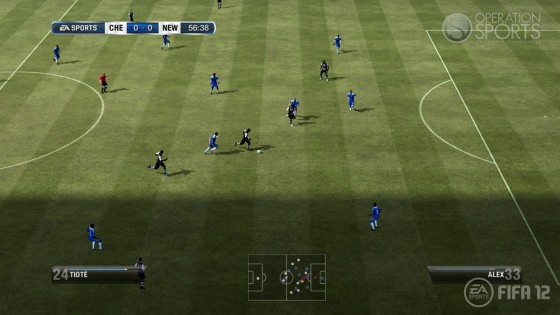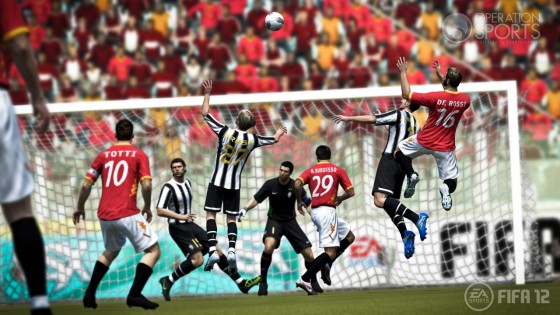

North American sports fans may find it quite different, and perhaps more difficult, to successfully build a dynasty in soccer games. If you think the MLB doesn’t do enough to ensure parity in the league, wait until you read about what goes on (or doesn’t) in soccer leagues around the world.
Note that most of these off pitch rules don’t apply to MLS, as the league contains some distinctly North American characteristics to the team building side of the sport. And as always, there are bound to be some discrepancies league by league, but by and large, the following are applicable to most of the world’s biggest leagues.

Building a successful soccer team from the ground up is not for the impatient. I mean, we’ve all been there before in other sports games, right? Take over a slumping franchise, trade veterans for prospects and picks, and voila, you've got an up and coming contender just a season or two later.
No such luck in soccer. To start, there’s very little “trading”, per se, in soccer. Most transactions are done with money. That is, a club pays a fee to the club that’s selling a player. So if you’re trying to rebuild and want to sell off your first team veterans, you run the risk of not being able to find a replacement, especially because a player doesn’t have to join your club if they don’t want to. Unlike North American sports, where after trading players the new teams automatically assume their existing contracts, soccer clubs have to negotiate a new contract with players once their offers are accepted. And there can be plenty of reasons why some players won’t sign with you: the biggest one is usually money — that the offered wages aren’t to his liking; or if you’re playing Football Manager, your team’s reputation matters also a great deal.
That’s not to say there aren’t bargains to be had. Generally, if you want to get players on the cheap, take a look at their contracts. The longer the player is tied down for, the higher the premium you have to pay to get him. And why not? The club doesn’t need to get rid of him. On the flipside, if you see a player with only one season left on his contract, pay close attention because there’s a chance he won’t resign with his current team, and that team may offload him to get something, anything, in return.
If that hasn’t put you off from “blowing it all up” yet, consider this: tanking doesn't pay, because there are no drafts. So deliberately throwing the season — admit it, we’ve all done it — is out of the question. In fact, many of the leagues are divided into divisions, so if you end up in the bottom positions at the end of the season, you run the risk of being relegated to a lower division. It’s a huge deal, as your club will earn much less income and if you haven't been shown the door already, you will be forced to offload important players to lighten the salary commitments. It can be a pretty vicious spiral into the abyss, so -- and this may be in stark contrast to some team building philosophies with North American sports games -- win every game you can.
How does a club reinvent its squad then? The obvious answer is to buy promising youngsters from other teams. But for clubs without the financial clout, the answer lies in the scouting department. FIFA, PES and Football Manager all give you scouts to work with, and it’s a good idea to pay the big bucks and hire the good ones. It is through them that you can find the diamond in the rough, and for a fraction of the price of a “name” player with similar abilities. You can also invest in youth academies — soccer’s answer to drafting — where they take in local (and sometimes international) youths in hope that they will turn out to be a serviceable player, or if the stars align, a worldbeater.

Loans
If, say, you need a stopgap player to provide some temporary help for your squad, there is another solution besides purchasing a player and making a three or four year commitment — loans. If another club agrees, you can conceivably loan a player from them for either half a season or an entire one. For the club receiving the player, it’s usually because they need help in a certain position or in rounding out the squad, and don’t want to splash the cash. Loan fees are considerably cheaper and sometimes even free. However, almost always the loaner picks up the tab for the player’s contract, so you can’t get away from that. For the club loaning out the player, the reason is either financial -- they want somebody else to pick up the player’s tab — or developmental — they want the player to get competitive match experience that they otherwise wouldn’t get at their current club.
It’s important to make sure your club has enough depth. Many times when building a team, it’s easy to forget that many leagues, in addition to its regular league games, also have competitive cups of some sort. Take the English Premier League for example. There are two cup tournaments in addition to weekly league games, meaning that if you proceed to the latter rounds of each cup, there’s a chance that you’ll be playing two to three matches week in and week out. The increased matchloads will definitely tire out your regular starters, and if you don’t have a deep enough squad to rotate your team with, you run the risk of failure in all three of the competitions. And for those playing with contending teams, there are also continental cups to think about, so that’s potentially four different competitions for your team to deal with.
So if it sounds like it’s not the easiest task to steer a soccer club in manager mode or in Football Manager to success, that's because it isn’t. Often times, it will take more than a season or two to turn a faltering club’s fortunes around, and even if you’ve stacked your team to the hilt, there are no guarantees you’ll win anything either. But don’t let that deter you. building a soccer team can potentially be a lot more satisfying than turning a North American sports team around, precisely because of the lesser amount of rules designed to ensure parity. And of course, it also doesn’t take anything away from those of you who like to play with winning teams and have them vying for the pole position every season — that’s also a hard task with teams breathing down your neck. So, like I said in the beginning of the guide, if you have even a passing interest in the sport, go pick up a copy of FIFA, PES or Football Manager. All three of them are quality games, and all three will chip away at your free time until your significant other complains. And don't worry about which one you ultimately choose to spend your time on, we won't judge -- we know how difficult the choice can be.
So this completes the introductory guide to understanding and getting the most out of your soccer games. From the vibrant soccer community here at OS, may I be the first one to welcome you to the fraternity!



